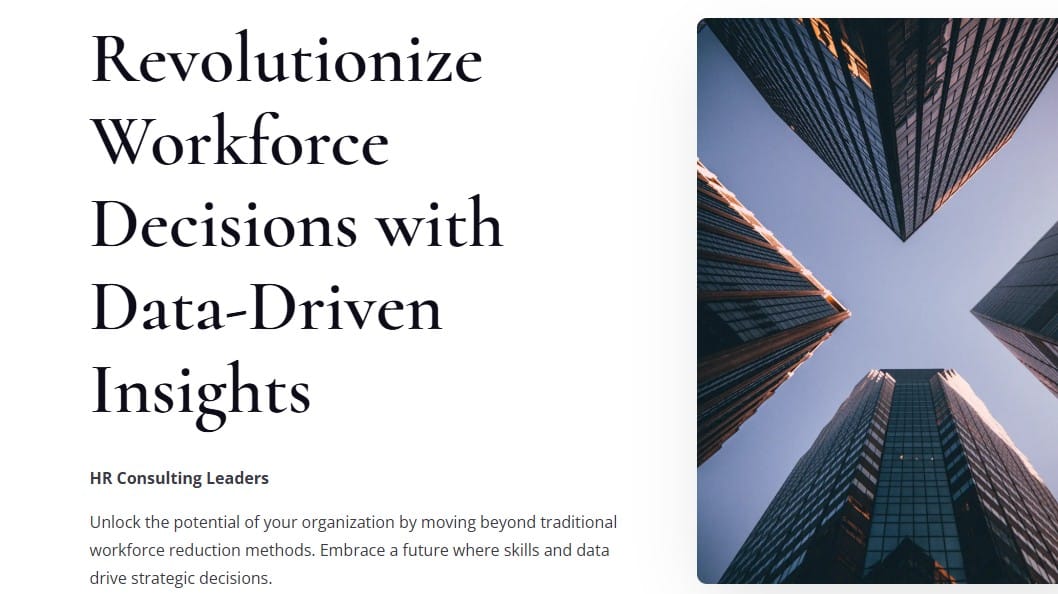The HR Burnout Crisis: How To Address the Stress
The HR burnout crisis has reached alarming levels in recent years, exacerbated by the COVID-19 pandemic.
The role of HR has significantly evolved, with HR professionals now finding themselves at the forefront of managing the well-being of the workforce. This has opened up many challenges and led to increased emotional exhaustion and burnout among HR teams.
As companies go through changes, it is crucial to prioritize the well-being of HR professionals. Here are some ways in which you, as an employer, can better the work environment for your HR staff.
Understand the causes of HR burnout:
A recent study by Sage found that 95% of HR professionals admitted that it was too much work, and 62% were considering leaving the profession.
These were the top reasons why:
- Overworked and understaffed: New responsibilities and tasks have led to increased workloads, and insufficient staffing resources contribute to emotional exhaustion.
- Remote working challenges: The sudden shift to remote and hybrid work blindsided many HR teams. Dealing with diverse geographies, managing employee onboarding and training, and ensuring fair engagement across locations have presented unforeseen challenges.
- The Great Resignation: HR departments are grappling with high turnover rates and the pressure to hire and retain talent amidst a mass exodus of employees.
The first step is understanding the impact of these factors on everyday working life so you can devise a plan with your HR staff to improve each segment.
Address burnout:
Here are some ways in which you can prioritize mental wellbeing at work:
- Hire an internal counselor and provide an in-house counseling space to support employees: This way, your HR employees know that there is somewhere to turn to whenever they need support at work. Just knowing that the support is there waiting for you can relieve some tension.
- Partner with your local or national Council for Mental Well-being: Organizations like this can help you deliver well-being workshops to your staff and certify other staff members as Peer Counselors.
- Organise company-wide, regular staff social events: Although not every staff member will participate in this, providing an out-of-work outlet for all staff will show HR members that you care about their inclusion and well-being.
- Hire more HR staff: If your staff feel that they have too much work to take on, it may be time to hire more people to take the load off them, provided that this is feasible for the company.
Establish healthy boundaries in remote work:
Remote working has affected HR staff the most over other sectors. 91% of HR professionals say that the past few years have been challenging and that the profession has changed dramatically.
HR professionals are responsible for supporting other employees within an organization, and managing a now dispersed workforce while also working remotely themselves is a challenge.
As this article from Runn.io states, overworking, when left unattended, can lead to burnout, so encouraging a work-life balance is crucial. Remote HR professionals should be supported by their employers to prioritize self-care.
These are some ways in which you as an employer can ensure your HR staff doesn’t reach the state of burnout:
- Provide a flexible working pattern: This doesn’t just mean a hybrid or remote working schedule. Allow your employees to work remotely in a time pattern that suits them, as long as they get the required work done.
- Offer a ‘time in lieu’ system and paid overtime: Some days, your staff may be able to get more work done than other days, so you could offer them the opportunity to take time off where they need it or be paid more in exchange for more work done. Not only will this improve productivity and relieve mental strain, but it also steers away from a tedious work schedule, keeping staff engaged and more likely to stay on the job.
- Restrict working hours each day: Some employees may wish to work the same hours every day, rather than mixing it up and working overtime. In this case, ensure that they only work a certain number of hours in the day and that they can log off as soon as they need to.
- Constantly communicate with your staff: Check in with your HR staff regularly and make sure they know they can communicate any issues that may emerge during their working day. Knowing they have your support will help reduce stress and form strong working relationships with you and other colleagues.
Invest in the right HR technology:
It is in the interests of HR staff and the business to keep up with the pace of new and emerging technology. HR teams require the right tools to manage their workload effectively and make their lives easier.
These tools include management systems for payroll, travel and expenses, learning, benefits, and, last but not least, measuring competence.
Measuring competence is a large part of the HR role. This requires a system that will accurately show staff where the company needs to improve and what it’s doing right.
Technologies like us at Kompetently aim to assist HR staff in this way. We’ll be able to work with your current software, not against it. You can build a customized user experience that is easy to set up and simple to onboard.
The HR burnout crisis demands immediate attention. To alleviate burnout and enhance productivity, organizations must prioritize mental health discussions, establish boundaries in remote work, and invest in sufficient HR technology.
If you are looking for new technology that will benefit your HR team, book a demo with us today at [email protected] or call us at +1 (512) 256-4342. We’ll show you how Kompetently® makes life easier for HR professionals.




